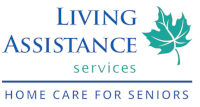Incorporating nutritious foods in our diets is important at any age, but for elderly adults it’s even more so. Older adults who eat a poor diet are vulnerable to infections and chronic illness. A poor diet can also weaken muscles and bones, having a negative impact on an elderly person’s quality of life and independence.
On the flipside, healthy foods can boost the immune system and lower the risk of illness, increase energy levels, and help elderly adults stay healthy and independent longer.
Contrary to popular belief, eating healthy doesn’t have to be expensive or boring. Incorporating nutrient-rich foods into the diet provides the vitamins, minerals, and proteins needed for optimum health. Nutritious foods can also help the pocket book because they keep you full longer than highly processed foods and those full of empty calories.
Here are the 5 most nutritious foods for elderly adults.
Low-fat dairy
Low-fat dairy products are an excellent source of calcium, vitamin D, protein, and other vitamins and nutrients. Research shows that increasing the intake of nutrient-rich dairy products improves bone and muscle health in older adults. It’s also been linked to lower blood pressure and reduced risk of metabolic syndrome.
There are plenty of low-fat dairy products to choose from, such as milk, yogurt, and cheese.
Here are just some healthy-and tasty—ways to enjoy low-fat dairy:
- Top yogurt with fruit, nuts, or granola—or all three!
- Add fruit to cottage cheese.
- Pair your favourite cheese with apple or pear slices, or with fig preserves.
- Spread light cream cheese on a bagel and add a bit of your favorite jam for a sweet treat!
- Shred low-fat cheese on scrambled eggs or an omelette for a protein-packed meal.
Fatty fish
Fatty fish, such as salmon, cod, and mackerel are rich in protein and omega-3 fatty acids, which play an essential role in brain and heart health.
While fresh fish is nice when you can get it, it’s not essential for getting the benefits. Canned and frozen options are easily accessible, don’t require extra prep, and are budget-friendly.
Here are some nutrient-rich fatty fish options to consider:
- Canned sardines
- Frozen wild salmon, cod, or pollock.
- Tuna—canned or fresh—is great in sandwiches or salads.
Whole grains
Whole grains are fibre-packed and filling, and have been linked to successful aging. Successful aging, you ask? That’s defined as the absence of disability, cognitive issues, depression, and chronic disease. Whole grains have also been shown to improve heart health and metabolism, lower LDL cholesterol, and keep you regular.
The options are endless when it comes to whole grains with options that are great for any meal or snack, whether you or your ageing parent prefers savory or sweet.
Here are some ways to incorporate whole grains into your elderly loved one’s diet:
- Whole grain crackers, which are great on their own or with cheese, jam, or hummus.
- Oatmeal or oat cereal, which lowers cholesterol and improves heart health.
- Swap white pasta and rice for whole grain pasta and brown rice.
- Granola bars and oat bars, which are healthy and filling snacks.
Nuts
Not just a delicious snack—nuts have numerous health benefits for the ageing population! Nuts are packed with proteins, fibre, vitamins, fatty acids, and have anti-inflammatory and antioxidant properties that have protective effects for the heart and brain. They lower the risk of disease, help with cognitive disorders and frailty.
All nuts have health benefits so which ones you incorporate into your or your loved one’s diet comes down to preference. People with missing teeth and dentures may find nuts too hard to eat—literally. If this is the case, opt for nut butters instead, like peanut butter, almond butter, or cashew butter which is delicious on bread, in baked goods, or on apples or celery. Nut milks are also a good addition to any diet.
Lean protein
We can’t stress enough the importance of protein for elderly health. It helps with muscle and bone strength, energy levels, and more.
Lean protein isn’t just limited to lean cuts of meat; there are plenty of non-meat sources of protein, too, including:
- Beans (chickpeas, navy beans, fava beans, kidney beans…)
- Lentils
- Eggs
- Seafood
- Tofu
- Green peas
- Quinoa
-
Healthy eating can be easy and fun. Experiment with different foods and recipes. The internet is full of delicious healthy recipes to try! For those who can’t get out to shop on their own, you can have your caregiver accompany you to the store or have them do your shopping and even your cooking for you.
Make a fun day out of food shopping by having your caregiver accompany you to farmer’s markets for fresh produce and eggs or to your favorite bakery for fresh whole grain breads and treats!

